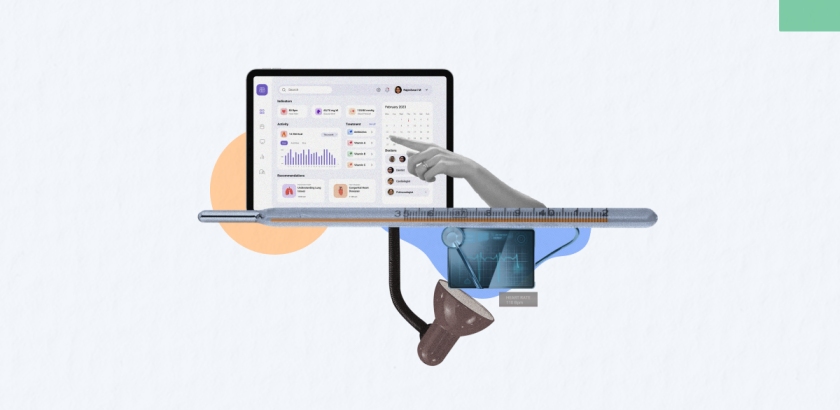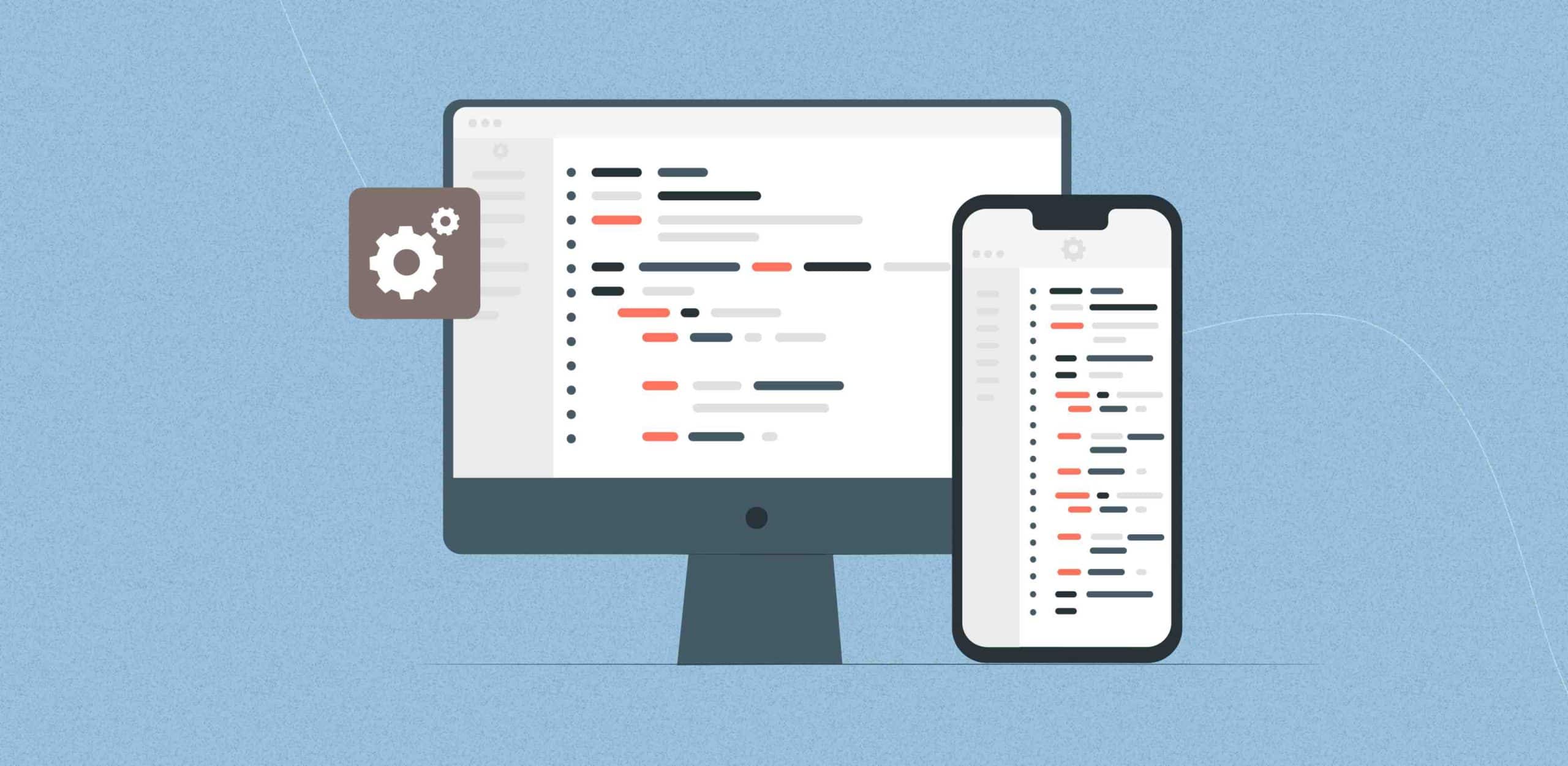In today’s fast-paced world, healthcare app development has become increasingly popular. With the rise of technology, patients are seeking new and innovative ways to manage their health. This has led to an increase in demand for healthcare apps that can help people track their medical history, access medical information, and communicate with healthcare providers. However, building a successful healthcare app is a challenging task. There are several factors that need to be considered to ensure the success of the app. In this blog, we’ll be discussing the essential strategies that are necessary to build a successful healthcare app.
Strategies to be followed in healthcare app development
Mentioned below are some of the essential strategies to be focused on in the healthcare app development process.
Know your audience
Before starting the healthcare app development process, it is important to understand your target audience. Who will be using your app? What are the audience’s needs, and what kind of information are they looking for? Understanding the target audience will help you make informed decisions about the features and functionalities of the app. It is also important to consider the age group of the target audience, as older individuals may require different functionalities compared to younger individuals.
Conduct market research
Before investing time and resources into the healthcare app development process, it is important to conduct market research to understand the competition and the demand for the app. Analyze the existing healthcare apps in the market and find out what features and functionalities they offer. Use this information to determine how you can differentiate your app and offer a unique experience to the users.
Focus on security and privacy
Healthcare apps deal with sensitive personal and medical information, which makes it important to focus on security and privacy. The app must be secure enough to protect the personal and medical information of the users. The app should also be compliant with HIPAA (Health Insurance Portability and Accountability Act) regulations, which ensure the privacy and security of medical information.
Make it user-friendly
Healthcare apps can be complex, but it is important to make sure that they are user-friendly. The app should be easy to navigate and understand. The design should be simple and intuitive, and the functionality should be straightforward. This will ensure that users are able to use the app without any difficulty and find the information they need quickly.
Integrate with existing healthcare systems
Healthcare apps should be integrated with existing healthcare systems to provide a seamless experience to the users. Integration with electronic health records (EHRs) and other healthcare systems will allow users to access their medical information, track their health, and communicate with healthcare providers. This will also help users to keep track of their medical history and provide healthcare providers with important information to make informed decisions.
Make it accessible
Healthcare apps should be accessible to everyone, regardless of their physical abilities. The app should be accessible to individuals with disabilities and should be compatible with assistive technology. This will ensure that everyone is able to use the app and access important health information.
Provide support and maintenance
After the healthcare app has been launched, it is important to provide support and maintenance. The app should be regularly updated to ensure that it remains functional and secure. The app should also be tested to ensure that it is free of bugs and that the users are able to use it without any issues.
Building a successful healthcare app requires careful planning and consideration of various factors. And by following these essential strategies, you can build a healthcare app that will meet the needs of the users and provide a seamless and secure experience.
It is clear that there are several essential strategies that need to be followed when building a healthcare app. These strategies will ensure that the app is secure, user-friendly, accessible, and provides value to the users. It is also important to remember that the healthcare app development process does not end after the app is launched. Ongoing support and maintenance are necessary to keep the app functioning correctly and to ensure that users continue to find it valuable.
Another important aspect of healthcare app development is the platform that the app will be built on. There are several platforms available, including iOS and Android, and the choice will depend on the target audience and their device preferences. In some cases, it may be necessary to develop separate apps for each platform to ensure optimal performance and user experience.
In addition to these essential strategies, it is also important to consider the cost of developing a healthcare app. The cost will depend on several factors, including the complexity of the app, the platform it will be built on, and the development team. It is important to have a clear understanding of the budget before starting the development process to ensure that the app can be built within the resources available.
Finally, it is important to remember that a successful healthcare app requires a team effort. This includes not only the developers but also healthcare professionals, designers, and stakeholders. It is important to work together to ensure that the app meets the needs of the users and provides value to the healthcare industry.
Upgrade your healthcare services with the latest technology.
Conclusion
Building a successful healthcare app requires careful planning and consideration of various factors. By following the essential strategies discussed and considering the target audience, market research, security and privacy, user-friendliness, integration with existing healthcare systems, accessibility, and cost, healthcare app development can be a successful and rewarding experience.
The healthcare app should be built with the aim of providing value to the users and making a positive impact on the healthcare industry. With the right approach, a healthcare app can help people manage their health, access important medical information, and improve communication with healthcare providers. If you are looking to implement or custom-develop your own healthcare solutions, don’t hesitate to reach out to us. Our team of experts is ready to help bring your vision to life and revolutionize the healthcare industry.
Transform the way healthcare is delivered with our innovative app development services.
Let’s transform your business for a change that matters.
F. A. Q.
Do you have additional questions?
The essential strategies for healthcare app development include considering the target audience, market research, security and privacy, user-friendliness, integration with existing healthcare systems, accessibility, and cost.
Security and privacy are critical in healthcare app development as the app will be handling sensitive medical information. It is important to ensure that the app meets the necessary security standards to protect the users’ data.
The platform for healthcare app development can have a significant impact on the app’s performance and user experience. It is important to consider the target audience and their device preferences when choosing the platform.
The cost of developing a healthcare app can vary based on the complexity of the app, the platform it will be built on, and the development team. It is important to have a clear understanding of the budget before starting the development process.
Healthcare professionals play an important role in the development of a healthcare app. They provide valuable input to ensure that the app meets the needs of the users and provides value to the healthcare industry. It is important to work together with healthcare professionals, designers, and stakeholders to ensure the success of the app.



















